
Sabbath Midweek
Looking for rest in the middle of your busy week? Every Wednesday from noon to 1pm, join with members of the MIT community for a simple drop-in lunch and time of contemplative prayer in the main dining room of the Chaplains’ building (W11). Open to all.
Text JOIN to 833-459-3187 for occasional event reminder and updates.

MIT Christian Community Meet-and-Greet
Welcome to MIT! Come meet and hear from members of the Christian community from the faculty, staff, students, and campus ministers. Dinner will be provided. A joint presentation of the Octet Collaborative and United Christian Organization at MIT.
Please RSVP here or text “JOIN” to 833-459-3187.

MIT Christian Community Meet-and-Greet
Welcome to MIT! Come meet and hear from members of the Christian community from the faculty, staff, students, and campus ministers. Snacks will be provided. A joint presentation of the Octet Collaborative and United Christian Organization at MIT.

When Science Meets the Real World: Artificial Intelligence and the Common Good
Artificial Intelligence is now a basic part of daily life, supporting our health, directing government services, shaping relationships, and even ordering our spiritual lives. As AI becomes more widespread amidst scandals over its misuse, public trust in technology companies has declined.
How can we ensure that AI serves the common good? Can Christian insights on personhood, beneficence, and justice provide wisdom to guide those who design, use, and govern AI systems?
Join us as we partner with Chesterton House at Cornell to welcome two senior scholars, campus leaders, and thinkers at the nexus of faith and science.
Dr. Rosalind Picard is founder and director of the Affective Computing Research Group at the MIT Media Laboratory, co-founder of Affectiva, which provides Emotion AI, and co-founder and chief scientist of Empatica, which provides the first FDA-cleared smartwatch to detect seizures. Picard is author of over three hundred peer-reviewed articles spanning AI, affective computing, and medicine.
Dr. J. Nathan Matias organizes citizen behavioral science for a safer, fairer, more understanding internet. Nathan is an assistant professor in the Cornell University Department of Communication and field member in Information Science. Nathan is founder of the Citizens and Technology Lab, a public-interest research group at Cornell that organizes citizen behavioral science and behavioral consumer protection research for digital life.
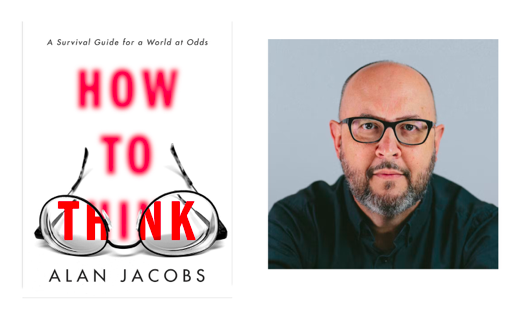
MIT Faculty Reading Group: How to Think
Alan Jacobs argues that most of us don’t want to think. Thinking is trouble. Thinking can force us out of familiar, comforting habits, and it can complicate our relationships with like-minded friends. Finally, thinking is slow, and that’s a problem when our habits of consuming information (mostly online) leave us lost in the spin cycle of social media, partisan bickering, and confirmation bias.
But Jacobs is optimistic that we can learn to think, and to do so together. Come join the faculty reading group to talk about the challenges to thinking, the virtues necessary for thinking, and to engage in some good thinking in community as we consider how to develop these virtues in ourselves and our students!
Open to MIT faculty members. For details, contact: Nathan Barczi, Executive Director, PhD ‘07
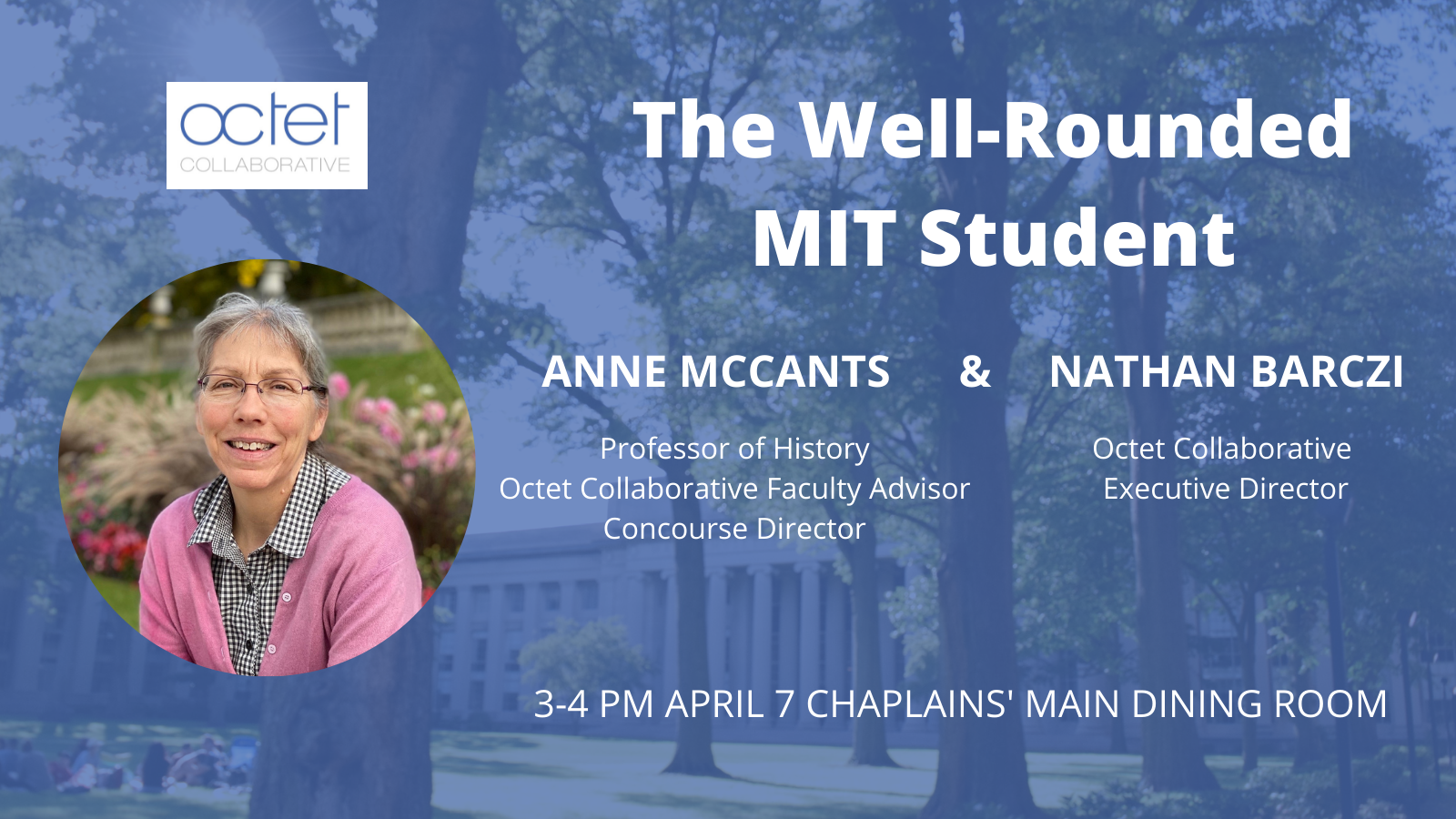
The Well-Rounded MIT Student
As part of MIT’s Campus Preview Weekend for admitted first-year students, Anne McCants, professor of history, faculty advisor for Octet, and director of Concourse, will join Nathan Barczi, Executive Director of Octet, for a conversation about resources available to MIT students to help them navigate the transition to adulthood and find balance in their lives during an MIT education. Event open to admitted first-year MIT students only.
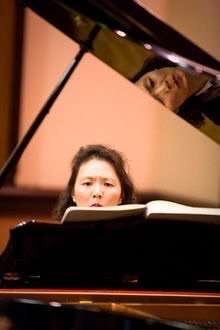
The Artist Under Threat: Facing Internal and External Dangers
How do threats and constraints shape a composer's creativity and style, and how do internal threats differ from external ones?
Join Octet Collaborative founder and board chair Mia Chung-Yee, speaking and performing, as she examines the works of Beethoven and Zhou Long in seeking answers to these questions, presented by Boston Fellows.
This event is open to the public. Registration is $20 and is available here. Lunch is provided.
Mia Chung-Yee has enjoyed great success internationally as a solo recitalist, concerto soloist and chamber musician. In 1993, she won first prize at the Concert Artists Guild Competition and in 1997, she received the Avery Fisher Career Grant, the highest recognition for young concert artists in the United States. Mia graduated with a bachelor's degree from Harvard College, a master’s degree from Yale University and doctorate from The Juilliard School. She served as Professor of Music and Artist in Residence at Gordon College from 1991 to 2011 and joined the faculty of the Curtis Institute of Music as Professor of Musical Studies in 2012. She has been a guest speaker and panelist at Veritas Forum events and was a fellow in the Veritas Riff program in 2014 and 2018.
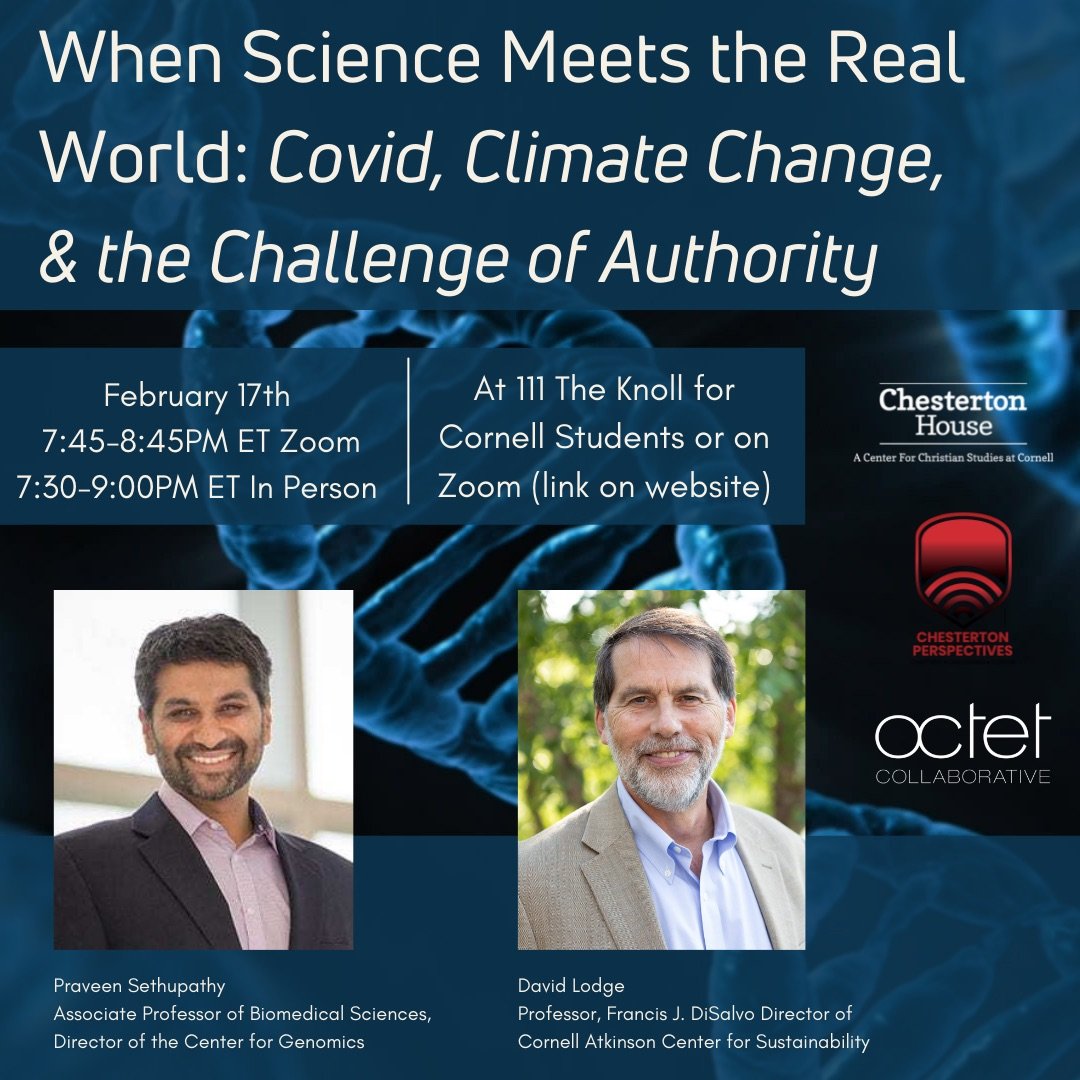
When Science Meets the Real World: Covid, Climate Change, & the Challenge of Authority
Religious communities are sometimes deeply divided about the role of science and scientists in society. On the one hand, some Christian (and particularly white evangelical) churches are perceived as not taking COVID and climate change seriously, which manifests as vaccine resistance and disinterest in conservation efforts. This can lead to tragic death and inaction in areas of urgency for the common good.
On the other hand, Christians with high levels of education and privilege are often accused of regarding their less educated religious compatriots with moral condescension or even outright contempt. The perceived lack of intellectual humility has been connected to the censorship or even punishment of those who question scientific consensus.
Join us as we partner with Chesterton House at Cornell to welcome two senior scholars, campus leaders, and thinkers at the nexus of faith and science. From their respective disciplines of ecology and molecular biology they have unique perspectives on how the ideological fractures mentioned above play out in the research world and in lay communities across the country.

Artificial Intelligence: The Reach of Data
If machine learning can predict behavior, can it also manipulate behavior? Is facial recognition software just? What might it mean to love God and neighbor in our use of Artificial Intelligence?
Join Octet Collaborative board member Ehi Nosakhare and Justin Hawkins for a timely conversation, presented by Boston Fellows.
This event is open to the public. Registration is $15. Lunch is provided. To reserve your spot, please register by Thursday, February 10.
Dr. Ehimwenma Nosakhare is a Senior AI Data Scientist at Microsoft's New England Research and Development Center (NERD). She designs, develops, and leads the implementation of machine learning solutions in application projects for Microsoft's products and services. Ehi earned her Ph.D. in Electrical Engineering and Computers Science (EECS) from MIT in 2018.
Justin Hawkins is pursuing a combined PhD in Religious Studies and Political Science at Yale University. His research interests focus on Christian social ethics, political theology, and the Political Theory of the Bible, as well as systematic and philosophical theology, disability ethics, and ethical considerations of emerging technologies. He is Editor-at-large at Fare Forward journal.
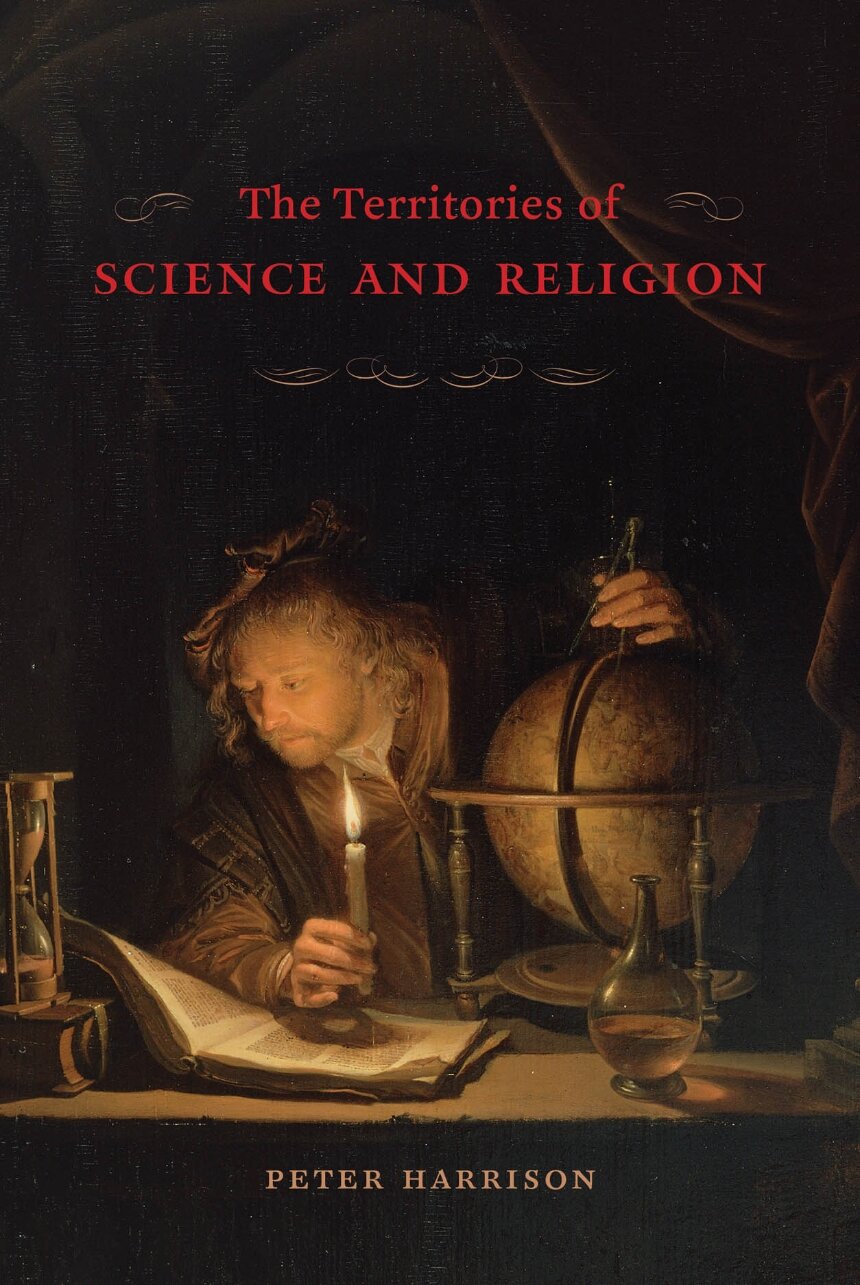
The Territories of Science and Religion: A History of Science Reading Group
Are science and religion inherently opposed? Have they always been? Not necessarily, argues distinguished scholar Peter Harrison in The Territories of Science and Religion. He demonstrates that the concepts of science and religion, as we understand them, are relatively recent, and that the boundaries between them have historically been dynamic and even permeable. Come join fellow members of the MIT community to read and discuss Harrison’s book and examine how very different approaches to reality have related to and mutually enriched each other, and how they may do so again.
Tuesday afternoons, 3-4:30pm, January 4-25, 2022
Location: MIT, Building 16-160
Open to students, faculty and staff at MIT - book purchase covered for MIT students on request
Contact: Nathan Barczi, Executive Director, PhD ‘07
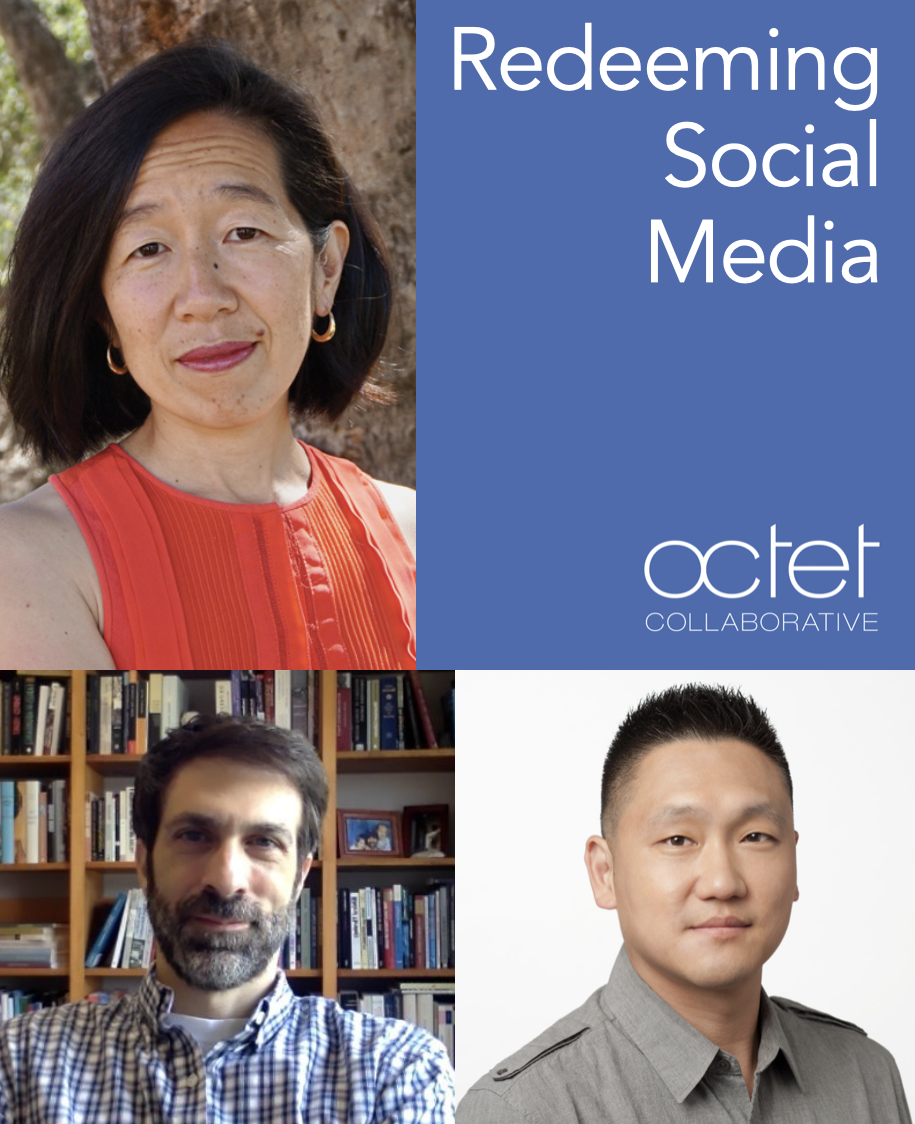
Redeeming Social Media: Christian Reflections on Using (and Building) Social Media More Wisely
Not many things inspire bipartisanship on Capitol Hill these days - with the exception of criticizing Big Tech. Though Facebook has been most in the crosshairs recently, criticism has also been directed at Google, Apple, Amazon, and Twitter. For all the promise of social media, search, and internet commerce, concerns that these firms are causing more damage than benefit seem to be gathering steam.
What wisdom can Christians offer in this situation? What does it look like to use social media and other digital technologies well? What wisdom can the Christian faith provide for those who are building them?
Register here to join the Octet Collaborative for this virtual conversation on this crucial topic with an expert panel of theorists and practitioners.
Felicia Wu Song is a sociologist who studies the social and cultural effects of digital technologies on community and identity in contemporary life. Trained in history, communication studies, and sociology from Yale, Northwestern and University of Virginia, she is professor of sociology at Westmont College in Santa Barbara, CA. She is author of a new book, "Restless Devices: Recovering Personhood, Presence, and Place in the Digital Age (Intervarsity Press Academic). Her prior research includes her first book, "Virtual Communities: Bowling Alone, Online Together (2009)which explored the democratic efficacy of online communities, and other studies on expectant women's online information-seeking habits and the evolution of "mommy bloggers".
Michael Sacasas is the associate director of the Christian Study Center of Gainesville and the author of The Convivial Society, a newsletter about technology, culture, and the moral life. His work has appeared in The New Atlantis, Breaking Ground, Real Life, The New Inquiry, and Mere Orthodoxy. He is the author of a forthcoming book titled 41 Questions: Technology and the Good Life.
Currently on assignment at Google, Nick Kim drives engineering projects for YouTube and is a member of the Google Christian Steering Committee. He is also involved with global missions organizations with the heart to supercharge missions and innovate on ways to serve the nations. Nick is a superhero by night and a father of two biological sons and an adopted daughter by day. He is based out of Mountain View, while living in Orange County with his wife and three children.
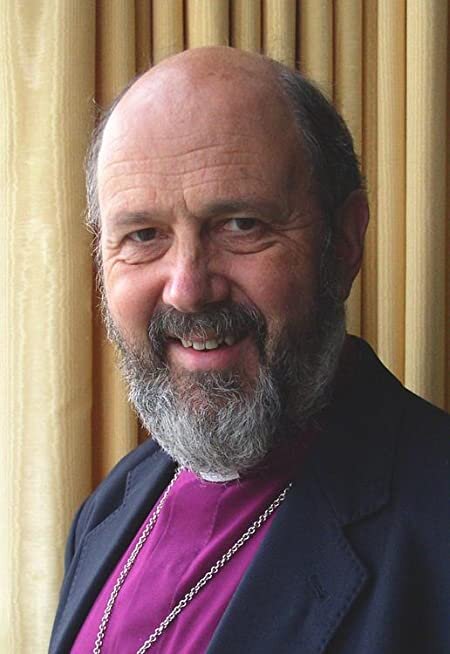
Jesus Christ & the Importance of History: A Conversation with NT Wright
Christianity appeals to history. Something happened, in the events concerning Jesus, as a result of which – so Christians claim – the world is a different place. But how does "history" actually work? What can it do to help the tasks of theology and apologetics, and above all, the work of the gospel?
Join us for a rich conversation between N.T. Wright and Drew Trotter, Senior Scholar at the Consortium of Christian Study Centers. There will be time for questions and answers. We look forward to having you join us.
Register here or contact Nathan Barczi with questions.

The Territories of Science and Religion: A History of Science Reading Group
Are science and religion inherently opposed? Have they always been? Not necessarily, argues distinguished scholar Peter Harrison in The Territories of Science and Religion. He demonstrates that the concepts of science and religion, as we understand them, are relatively recent, and that the boundaries between them have historically been dynamic and even permeable. Come join fellow members of the MIT community to read and discuss Harrison’s book and examine how very different approaches to reality have related to and mutually enriched each other, and how they may do so again.
Tuesday evenings, 5-6pm, October 26 - November 30, 2021
Location: MIT, Building 16-160
Open to students, faculty and staff at MIT - book purchase covered for MIT students on request
Contact: Nathan Barczi, Executive Director, PhD ‘07
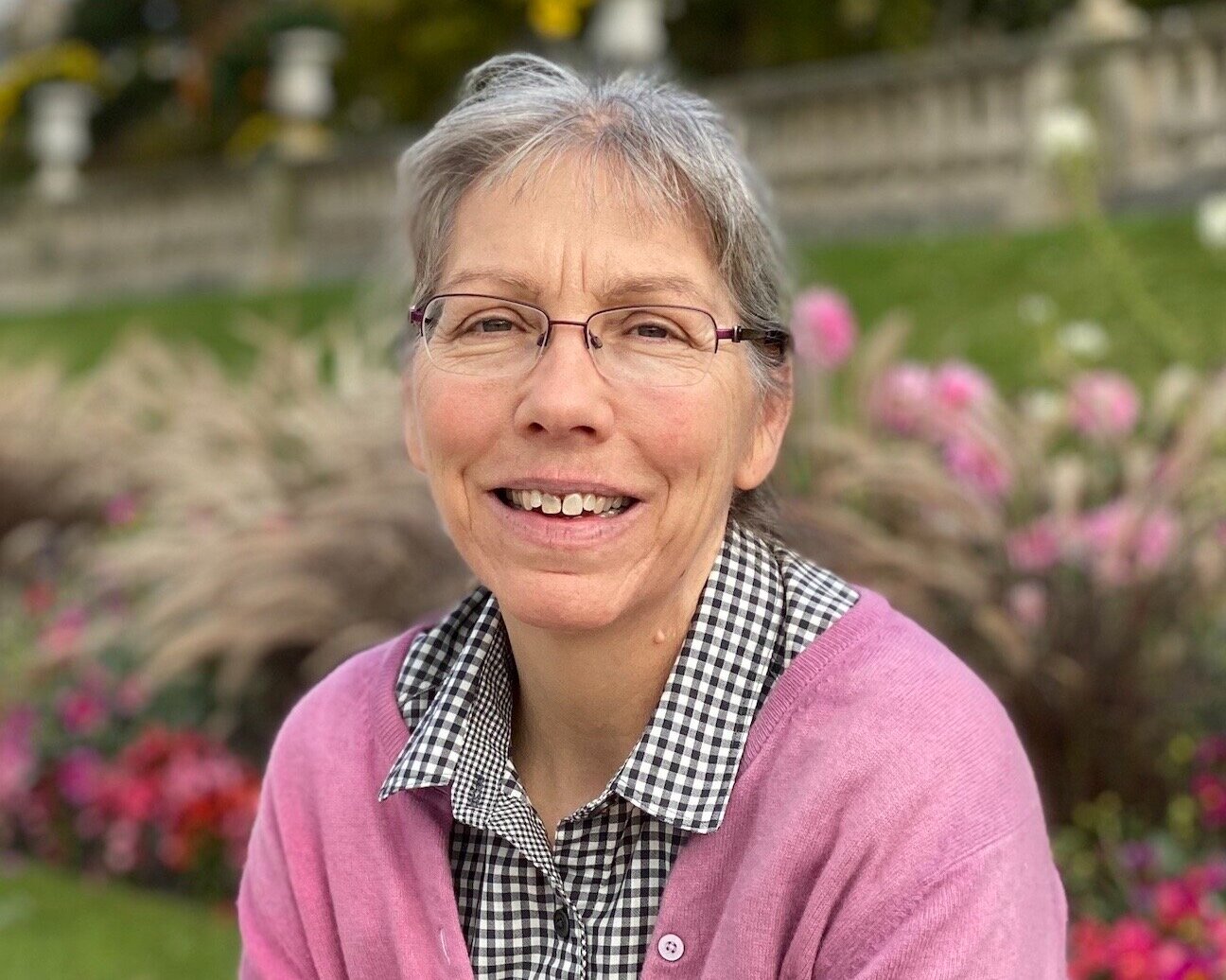
Friday Conversations: Prof. Anne McCants & Sustaining Community Through a Pandemic
Last spring, one week after MIT went into lockdown, Prof. Anne McCants sat down at her kitchen table and wondered how to maintain a sense of community among the students of the Concourse program, an intellectual community at MIT that integrates the humanities and the sciences in order to pursue fundamental human questions. She began to write the first of what would become “Notes from the Director’s Kitchen,” a series of biweekly musings on gardening, being a neighbor, patience in the midst of loss, scholarship during a time of pandemic, unexpected gifts, faith, and family.
Join us online on May 7 at 2:30pm for a live conversation with Prof. McCants, history professor at MIT and Octet Collaborative faculty advisor. Zoom link to follow.
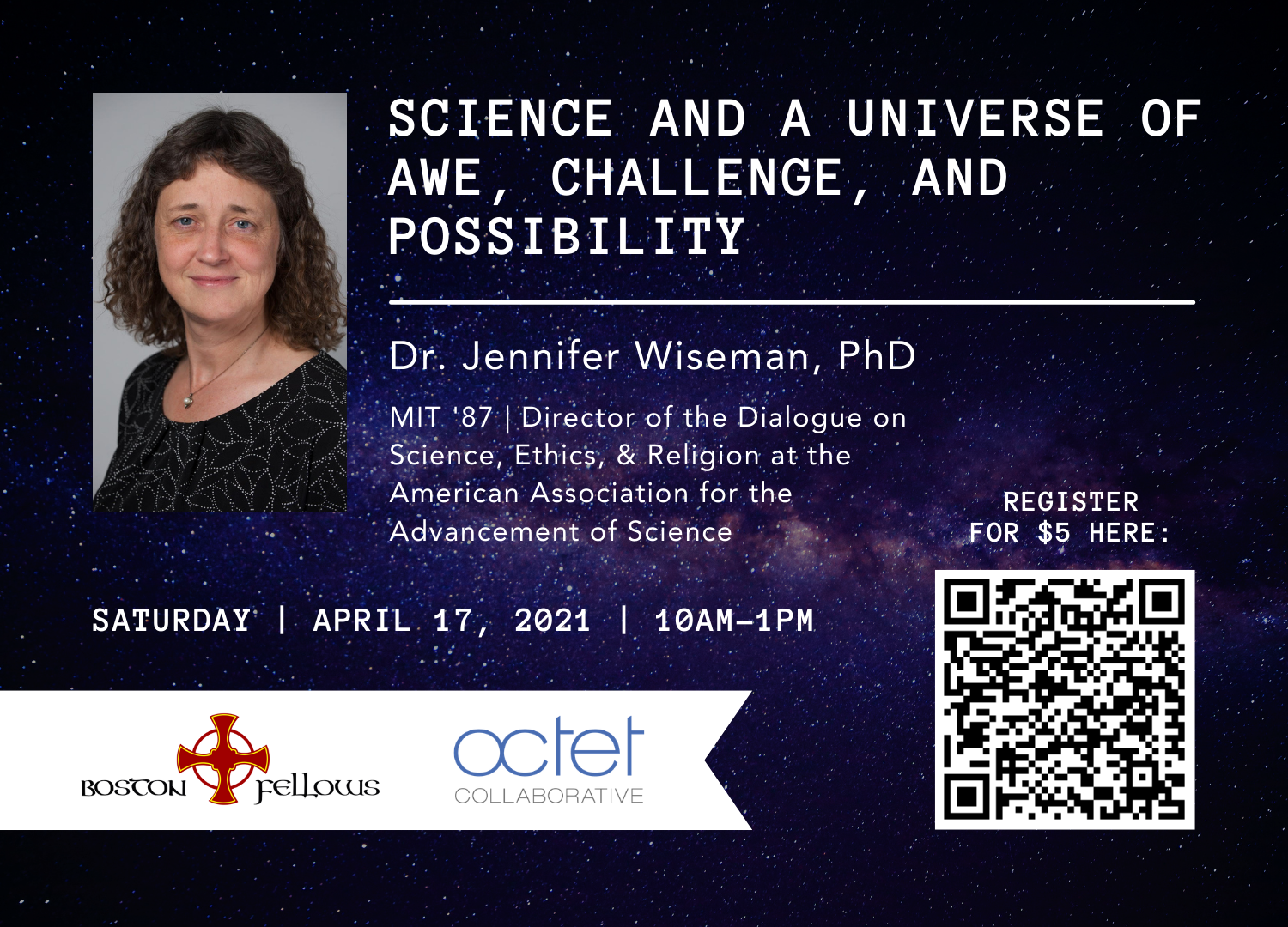
Science and a Universe of Awe, Challenge, and Possibility
On April 17th, we’re looking forward to talking with Jennifer Wiseman, Director of the Dialogue on Science, Ethics, & Religion, about the majesty of outer space, our relationship with the natural world, and how to navigate the promises and ethical challenges of technological advancement at an event called Science and a Universe of Awe, Challenge, and Possibility which the Octet Collaborative will be co-hosting with Boston Fellows.
Register here for $5.

Mathematics and Human Flourishing: A Conversation about Beauty, Justice, and Love
In partnership with Chesterton House and The Veritas Forum, The Octet Collaborative is pleased to present Harvey Mudd mathematician Francis Su, in conversation with Mia Chung-Yee. Q&A to follow.
For many people, math is cold and lifeless, a bunch of rules to follow---a way to separate people rather than a way to bring them together. It’s no wonder that many have anxiety over their math experiences. But what if we could see how math is tied to our deepest human longings---for beauty, for justice, for love? Would we see it---and ourselves---differently? Join mathematician Francis Su in conversation with Mia Chung-Yee as they discuss the broader implications of his new book Mathematics for Human Flourishing, which he wrote in collaboration with his friend Christopher Jackson, an incarcerated man who reshaped Su's own views of what math is, who it's for, and why anyone should learn it.
Francis Su is the Benediktsson-Karwa Professor of Mathematics at Harvey Mudd College, and former president of the Mathematical Association of America. He received his Ph.D. from Harvard University, and in 2000, he was a visiting professor at Cornell. His research is in geometric combinatorics and applications to the social sciences. On a popular level, he writes about the dignity of human beings and the wonder of mathematical teaching. In 2013, he received the Haimo Award, a nationwide teaching prize for college math faculty, and in 2018 he won the Halmos-Ford writing award for a speech that inspired his book Mathematics for Human Flourishing (2020). His work has been featured in Quanta Magazine, Wired, and the New York Times.

Human Flourishing at MIT
A Virtual Summit for Members and Friends of the MIT Community to Explore a Christian Vision of the Common Good.
What does it mean to flourish? How can the resources of Christian faith and practice contribute to human flourishing at MIT, and to MIT’s contribution to human flourishing around the world? On October 10, faculty, staff, students, alumni, and friends of the MIT community will gather to share their perspectives and wisdom at the launch of The Octet Collaborative, a new Christian study center serving MIT. We invite you join the conversation!
